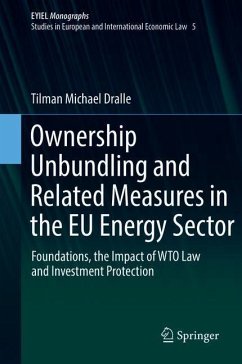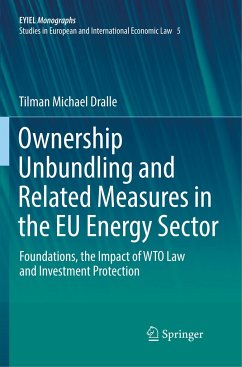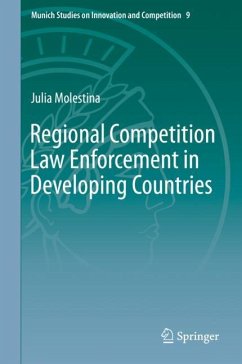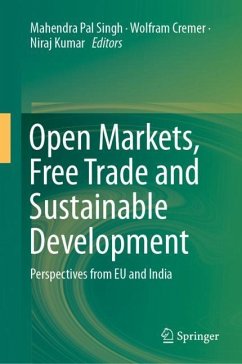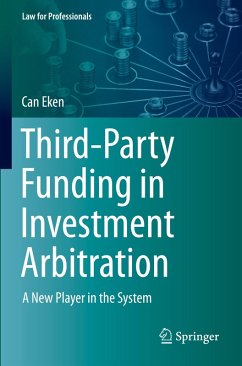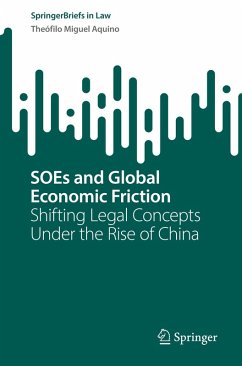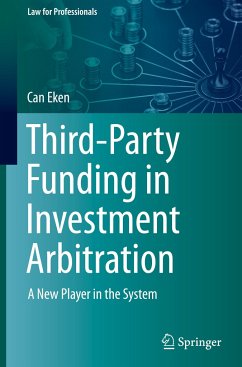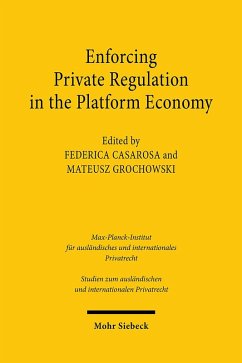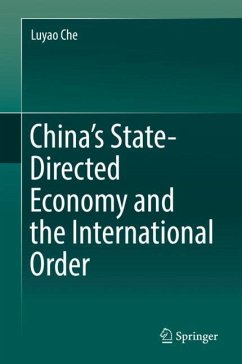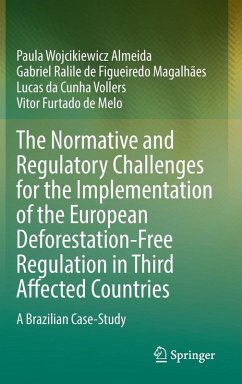
The Normative and Regulatory Challenges for the Implementation of the European Deforestation-Free Regulation in Third Affected Countries
A Brazilian Case-Study

PAYBACK Punkte
49 °P sammeln!
This book critically examines the primary challenges associated with the indirect implementation of the European Deforestation-Free Regulation (EUDR) in Brazil. The EUDR is a demand-side regulatory measure designed to mitigate the European Union's (EU's) contribution to global deforestation and forest degradation, thereby aiming to reduce greenhouse gas emissions and biodiversity loss.The regulation has raised concerns among certain countries that its compliance requirements may impose significant costs on their production chains, leading to potential extraterritorial effects. While the EUDR d...
This book critically examines the primary challenges associated with the indirect implementation of the European Deforestation-Free Regulation (EUDR) in Brazil. The EUDR is a demand-side regulatory measure designed to mitigate the European Union's (EU's) contribution to global deforestation and forest degradation, thereby aiming to reduce greenhouse gas emissions and biodiversity loss.
The regulation has raised concerns among certain countries that its compliance requirements may impose significant costs on their production chains, leading to potential extraterritorial effects. While the EUDR does not directly apply to the normative frameworks of third countries, it mandates compliance for market access to the EU.
Therefore, this study addresses the following research question: What are the challenges to the indirect implementation of the EUDR in Brazil? To answer this question, the book analyzes the relationship between Brazil's national forest-related framework and the EUDR. It posits that the extraterritorial nature of the EUDR does not fully consider the unique specificities of other countries, which may lead to potential incompatibilities with their existing regulatory mechanisms.
The regulation has raised concerns among certain countries that its compliance requirements may impose significant costs on their production chains, leading to potential extraterritorial effects. While the EUDR does not directly apply to the normative frameworks of third countries, it mandates compliance for market access to the EU.
Therefore, this study addresses the following research question: What are the challenges to the indirect implementation of the EUDR in Brazil? To answer this question, the book analyzes the relationship between Brazil's national forest-related framework and the EUDR. It posits that the extraterritorial nature of the EUDR does not fully consider the unique specificities of other countries, which may lead to potential incompatibilities with their existing regulatory mechanisms.



